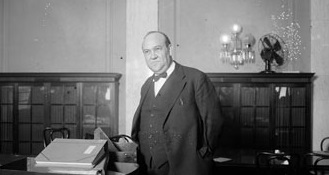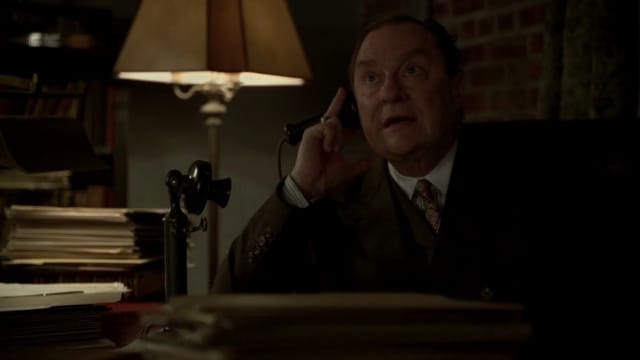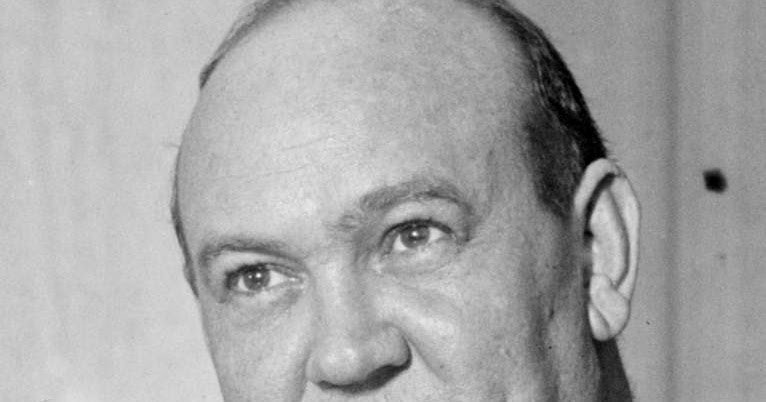Gaston Bullock Means was an American private detective, salesman, bootlegger, forger, swindler, murder suspect, blackmailer and con artist. Take a look below for 27 more interesting and bizarre facts about Gaston Means.
1. While not involved in the Teapot Dome scandal, Means was associated with other members of the so-called Ohio Gang that gathered around the administration of President Warren G. Harding.
2. Means also tried to pull a con associated with the Lindbergh kidnapping, and died in prison following his criminal conviction.
3. Means was born into a family of seven children.
4. His father was a lawyer and mayor of Concord who later became a state senator, and his mother was a wealthy Mississippi heiress.
5. In 1898, he enrolled at the University of North Carolina, intending to study law, but he eventually dropped out.

6. In 1901, he accepted a job as the superintendent of schools in the cotton mill town of Albermarle, North Carolina, but he quit two years later to work as a salesman for Cannon Mills, a textile company that his father represented.
7. Means relocated first to New York City, and then, in 1909, in an attempt to evade a breach-of-promise lawsuit brought by a woman with whom he had broken a marital engagement, to Chicago.
8. In 1914, Means accepted a position with the international detective agency established in New York City by William J. Burns, a former Secret Service agent.
9. Means’s enthusiasm for unscrupulous but productive practices, such as breaking and entering, wiretapping and extortion, soon earned him a prime place among Burns’s staff of investigators.
10. Just prior to accepting the job, Means had inveigled his way into the life of a wealthy Chicago widow, Maude King, by disentangling her from a group of con artists.
11. Ostensibly managing her finances, he himself proceeded to bilk her out of hundreds of thousands of dollars.

12. When that money had been spent, Means forged a new will stipulating that King had inherited a further portion of her husband’s estate, presumably so that he would have access to those funds.
13. In August, 1917, he invited her on a shooting expedition at Blackwedler’s Spring, North Carolina.
14. He claimed that while they were hunting, King accidentally shot herself in the back of the head. The will was determined by investigators to be forged and Means was indicted for murder, but he was acquitted later that year.
15. During the trial, it emerged that Means had, prior to the U.S. entry into World War I, fed information on shipbuilding to the spy ring established by German military attache Franz von Papen, who had been recalled in 1915 after being discovered by the U.S. government.
16. In later years, Means boasted to friends that he had been accused of every felony in the criminal law books, up to and including murder.
17. Although he had a shady reputation as a detective, in October, 1921, Means was hired by the Bureau of Investigation and he moved to Washington, D.C.

18. Burns had employed Means as a detective and thought Means had great skill as an investigator and an extortionist.
19. Despite the protection of his patron, Means was later suspended from the FBI at the insistence of Daugherty, who had become increasingly aware that Means was a loose cannon.
20. Although the United States was officially “dry” during the Harding years as a result of Prohibition, illegal alcohol was common. In the late fall of 1922, Means began selling his services to local Washington bootleggers, with the offer that he could use his connections to “fix” their legal problems with the government.
21. During and after his terms in the federal penitentiary, Means retained his reputation as the ultimate man who knew all of the secrets.
22. He put this reputation to work in his book, “The Strange Death of President Harding.”
23. Having collected his royalties, Means cheerfully repudiated his own book. He had moved on to a new set of victims, a group of New York men who were interested in subversive Soviet activities.
24. Means claimed to have the goods on two Soviets intent on wreaking havoc in the United States with $2 million earmarked for that purpose.

25. He took on the case at his usual price of $100 per day. His investigation dragged out for three years as Means promised to bring the secret agents to justice and to capture 24 trunks and 11 suitcases full of secret orders, plans and diaries.
26. He claimed several times that he almost got those trunks and suitcases and once did so, he said, but upon his return to New York, the secret agents stole them back again.
27. Finally, he delivered the news that one of the Russians had murdered the other and all the documents had been burned. He told his story so convincingly that an arrest warrant was sworn out against the killer, for a murder that existed only in Means’s imagination.




